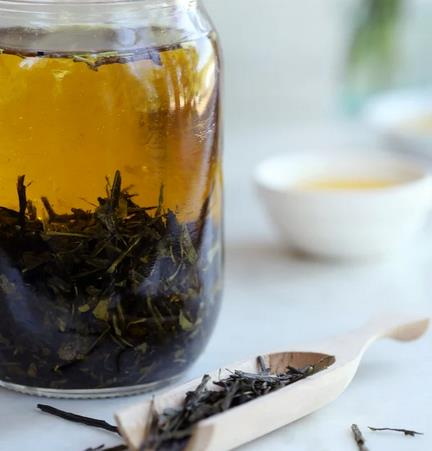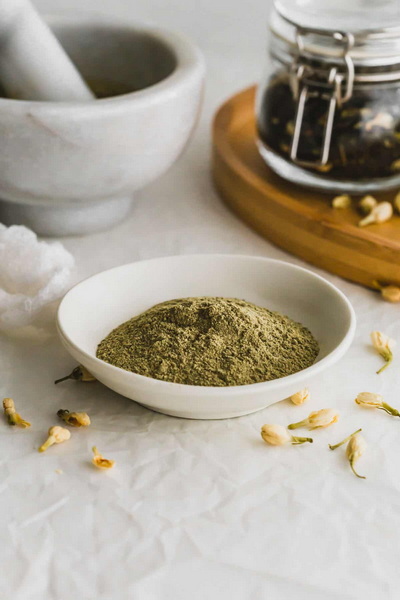Content Menu
● What is Green Tea Extract?
>> Composition of Green Tea Extract
● The Stimulant Effects of Green Tea Extract
>> Caffeine as a Stimulant
>> Research Findings
>> Comparison with Other Stimulants
● Health Benefits Beyond Stimulation
>> How Green Tea Extract Works
● Potential Side Effects
>> Recommended Dosage
● How to Incorporate Green Tea Extract into Your Diet
● Conclusion
● Related Questions
>> 1. Can I take green tea extract every day?
>> 2. Does green tea extract help with weight loss?
>> 3. Are there any interactions between green tea extract and medications?
>> 4. How does L-theanine affect caffeine's stimulant properties?
>> 5. Can I drink regular green tea instead of taking supplements?
● Citations:
Green tea extract, derived from the leaves of the "Camellia sinensis" plant, has gained significant popularity due to its numerous health benefits, including its potential role as a stimulant. This article explores the properties of green tea extract, its caffeine content, and its overall effects on the body, particularly in relation to stimulation.

What is Green Tea Extract?
Green tea extract is a concentrated form of green tea that contains high levels of polyphenols, particularly catechins. The most notable catechin is epigallocatechin gallate (EGCG), which is often credited with many of the health benefits associated with green tea. Unlike regular green tea, which is brewed and consumed as a beverage, green tea extract is typically available in capsule or powdered form, making it easier to consume in concentrated doses.
Composition of Green Tea Extract
- Caffeine: Green tea contains caffeine, a well-known stimulant that can enhance alertness and energy levels. The caffeine content in green tea varies but typically ranges from 30 to 50 mg per cup.
- Catechins: These antioxidants are responsible for many of the health benefits attributed to green tea. EGCG is the most studied catechin and has been linked to weight loss, improved brain function, and reduced risk of several diseases.
- L-Theanine: This amino acid found in green tea has calming effects and can counteract some of the jitteriness associated with caffeine consumption.
The Stimulant Effects of Green Tea Extract
Caffeine as a Stimulant
Caffeine is a central nervous system stimulant that temporarily increases alertness and reduces fatigue. It works by blocking adenosine receptors in the brain, which helps prevent drowsiness. While coffee typically contains higher levels of caffeine than green tea, the presence of other compounds in green tea may modulate its stimulant effects.
Research Findings
Studies have shown that green tea extract can enhance physical performance and endurance. For instance, one study indicated that mice given green tea extract showed improved endurance capacity during exercise due to increased fat oxidation and energy metabolism. This suggests that the stimulant effects of green tea extract may also enhance physical performance by improving metabolic processes.
Moreover, research has indicated that chronic administration of green tea extract can lead to increased wakefulness without significant withdrawal symptoms, similar to caffeine's effects. A study involving polysomnographic recordings demonstrated that mice treated with green tea extract exhibited prolonged wakefulness and reduced sleep latency, indicating an arousal-inducing effect.
Comparison with Other Stimulants
When compared to coffee or other caffeinated beverages, the stimulant effect of green tea extract may be milder due to its lower caffeine content and the presence of L-theanine. This combination can provide a more balanced energy boost without the jitteriness often associated with higher doses of caffeine.
| Beverage | Caffeine Content (mg per serving) | Additional Compounds | Stimulant Effect |
| Green Tea Extract | 30-50 | EGCG, L-theanine | Moderate |
| Coffee | 95-200 | None | High |
| Energy Drinks | 80-300 | Various stimulants | High |

Health Benefits Beyond Stimulation
While the stimulant properties of green tea extract are noteworthy, it also offers a range of other health benefits:
- Weight Loss: Green tea extract has been shown to aid in weight loss by enhancing fat oxidation and increasing metabolic rate. Several studies suggest that EGCG can boost metabolism by 3-4%, leading to increased calorie burning even at rest.
- Antioxidant Properties: The catechins in green tea are powerful antioxidants that help reduce oxidative stress and inflammation in the body. This can lower the risk of chronic diseases such as heart disease and cancer.
- Heart Health: Regular consumption of green tea extract may lower blood pressure and improve cholesterol levels, contributing to overall cardiovascular health. Studies have shown that individuals who regularly consume green tea have a lower risk of heart disease.
- Brain Health: Studies suggest that EGCG can protect brain cells from oxidative stress and may reduce the risk of neurodegenerative diseases such as Alzheimer's and Parkinson's. Additionally, L-theanine has been shown to promote relaxation without drowsiness, which can enhance cognitive function.
- Blood Sugar Regulation: Green tea extract may help regulate blood sugar levels by improving insulin sensitivity. Some studies indicate that it can lower fasting blood sugar levels and reduce the risk of type 2 diabetes.
How Green Tea Extract Works
The active compounds in green tea extract work synergistically to provide various health benefits:
1. Metabolism Boost: The catechins increase thermogenesis (the body's production of heat from burning calories) and fat oxidation during exercise.
2. Anti-inflammatory Effects: EGCG has been found to inhibit inflammatory pathways in the body, reducing chronic inflammation linked to many diseases.
3. Enhanced Mental Focus: The combination of caffeine and L-theanine promotes improved attention and focus while reducing anxiety levels associated with caffeine alone.
4. Fat Oxidation During Exercise: Research indicates that consuming green tea extract before exercise can increase fat burning during workouts, making it a popular choice among athletes looking to improve their performance.
Potential Side Effects
Despite its numerous benefits, excessive consumption of green tea extract can lead to side effects primarily due to its caffeine content:
- Jitteriness: High doses can cause anxiety or jitteriness in sensitive individuals.
- Insomnia: Consuming too much caffeine late in the day may disrupt sleep patterns.
- Gastrointestinal Issues: Some individuals may experience stomach upset or nausea when taking concentrated forms of green tea extract.
Recommended Dosage
For most people, consuming 250 to 500 mg of green tea extract daily is considered safe and effective. However, it's essential to consult with a healthcare provider before starting any new supplement regimen.
How to Incorporate Green Tea Extract into Your Diet
Incorporating green tea extract into your daily routine can be done easily through various methods:
- Supplements: Available as capsules or powders, supplements are an easy way to ensure you're getting a concentrated dose.
- Smoothies: Adding powdered green tea extract into smoothies can enhance their nutritional profile while providing an energy boost.
- Baking: Incorporate matcha powder (a form of green tea powder) into baked goods for added flavor and health benefits.
- Tea: Drinking brewed green tea regularly is another way to enjoy its benefits while staying hydrated.
Conclusion
Green tea extract does possess stimulant properties primarily due to its caffeine content. However, its unique composition—including catechins like EGCG and L-theanine—provides a more balanced stimulation compared to traditional stimulants like coffee. Beyond its role as a mild stimulant, green tea extract offers numerous health benefits that contribute positively to overall well-being. As with any supplement, moderation is key, and individuals should consider their tolerance levels when incorporating it into their routine.

Related Questions
1. Can I take green tea extract every day?
Yes, most people can safely consume 250 to 500 mg of green tea extract daily without adverse effects. However, it's advisable to consult with a healthcare provider before starting any new supplement regimen.
2. Does green tea extract help with weight loss?
Yes, studies have shown that green tea extract can aid in weight loss by enhancing fat oxidation and increasing metabolic rate. It may also help reduce appetite over time.
3. Are there any interactions between green tea extract and medications?
Green tea extract may interact with certain medications, including blood thinners and medications for high blood pressure or diabetes. Always consult your healthcare provider if you are on medication before taking supplements.
4. How does L-theanine affect caffeine's stimulant properties?
L-theanine promotes relaxation without drowsiness and can counteract some negative side effects associated with caffeine consumption, such as jitteriness or anxiety. This combination creates a more balanced energy boost when consuming products containing both compounds.
5. Can I drink regular green tea instead of taking supplements?
Yes! Drinking regular brewed green tea is an excellent way to reap its benefits while staying hydrated. However, if you're looking for higher concentrations of active compounds like EGCG or caffeine for specific purposes (like weight loss or energy), supplements may be more effective.
Citations:
[1] https://pmc.ncbi.nlm.nih.gov/articles/PMC9967785/
[2] https://www.webmd.com/vitamins/ai/ingredientmono-960/green-tea
[3] https://pubmed.ncbi.nlm.nih.gov/15563575/
[4] https://www.alamy.com/stock-photo/green-tea-extract.html
[5] https://www.youtube.com/watch?v=6-2FJMtvcNA
[6] https://www.healthline.com/nutrition/10-benefits-of-green-tea-extract
[7] https://www.urmc.rochester.edu/encyclopedia/content?contenttypeid=19&contentid=GreenTeaExtract
[8] https://www.mountsinai.org/health-library/herb/green-tea
[9] https://www.nature.com/articles/s41598-024-59383-y
[10] https://www.freepik.com/free-photos-vectors/green-tea-extract
[11] https://www.youtube.com/watch?v=eMuE16vLV_s
[12] https://pmc.ncbi.nlm.nih.gov/articles/PMC2855614/
[13] https://www.istockphoto.com/de/bot-wall?returnUrl=%2Fde%2Fphotos%2Fgreen-tea-extract






























